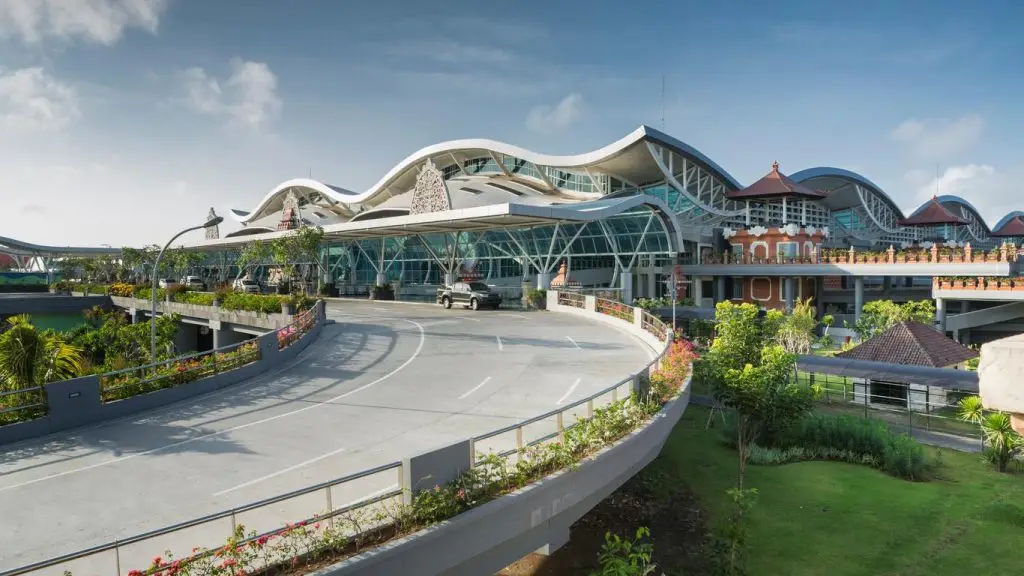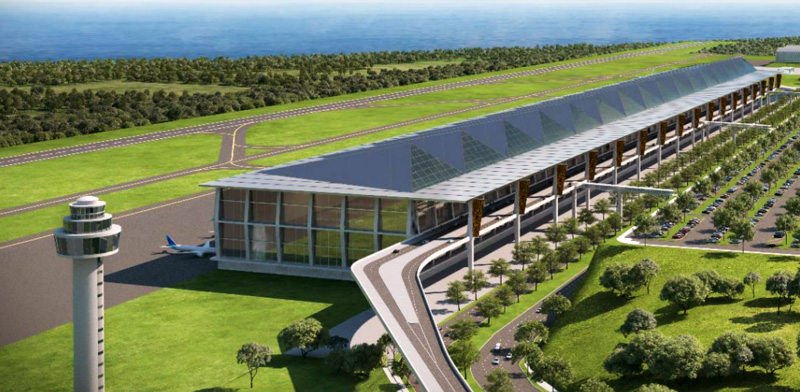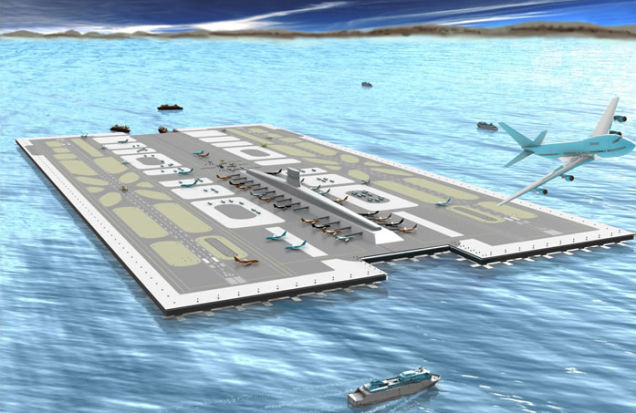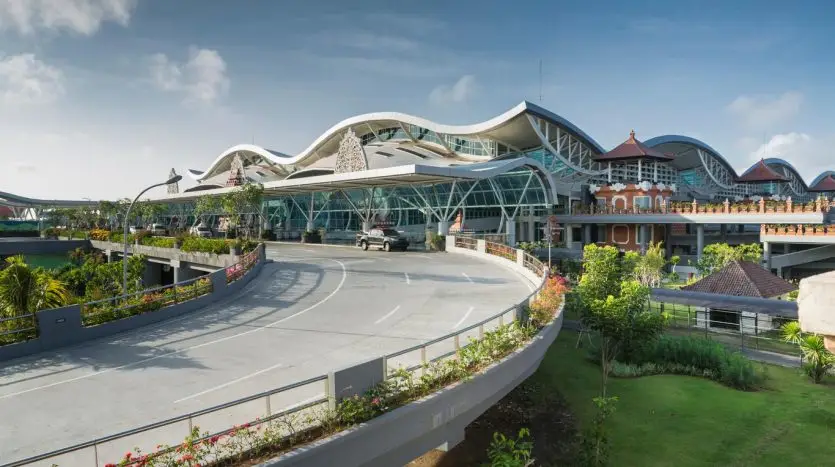Bali Airport
Bali’s Airport Traffic Up 16% Jan-June 2024
Bali Airport (I Gusti Ngurah Rai) has reported data showing 11,259,019 arriving and departing passengers and 68,202 aircraft movements during the first six months of 2024.

Quoted by Beritabali.com, the general manager of PT AngkasaPura I – the management authority for Bali’s Airport, Handy Heryudhitiawan, stated pm 10 July 2024: “The increase in passengers recorded in the first semester of 2024 shows that the image of the Island of Bali as a world-class tourism destination remains relevant.. “With the continued increase in passengers and flight routes at I GustiNgurahRai Airport in the first semester of 2024 it is certain that the services we provide will also increase,”
Continuing, Handy Heryudhitiawan added: Based on our operational data, passenger numbers increased by 16 percent in the first semester of 2024 compared to the first semester of 2023 when 9,743,788 passengers traveled through the Airport.”
During the first semester of 2024, the highest number of services at I GustiNgurahRai Airport traveled in June, with domestic and international passenger services reaching 2,075,255 passengers with 11,575 aircraft movements.
The number of passenger services increased by one percent compared to passenger services in May 2024, namely 2,060,098 passengers, although in May the number of aircraft movements was higher at 11,918 aircraft movements.
“During the period January to June 2024, I GustiNgurahRai International Airport served 4,696,929 domestic passengers and 6,562,090 international passengers. Normally, the number of international passengers passing through the airport is higher than the number of domestic passengers. “Currently, the average total number of passenger services at I GustiNgurahRai Airport reaches 74,563 passengers per day,” explained Handy.
Currently, I GustiNgurahRai Airport serves 22 domestic flight routes operated by 11 airlines and 36 international routes operated by 39 airlines.
During the first semester of 2024, the domestic route with the highest traffic levels in Jakarta (CGK) serving 2,304,112 passengers and 14,488 aircraft movements. Jakarta was followed by Surabaya, which served 705,105 passengers with 4,428 aircraft movements, and Makassar, with 256,042 passengers and 1,829 aircraft movements.
Meanwhile, the international routes with the highest passenger levels were Singapore, with 1,337,548 passengers and 6,549 aircraft movements; Kuala Lumpur, with 861,749 passengers and 5,277 aircraft movements; and Perth, recording 494,757 passengers and 3,292 aircraft movements.
Based on data from the NgurahRai Immigration office, Australian citizens ranked as the source of the highest number of arrivals during the first semester of 2024 with 724,311 travelers. Ranked next were Indian nationals totaling 284,699 travelers followed by Chinese nationals at 231,094 people. There are plans to add routes from various international destinations in the second half of 2024.
Tourism Expert Criticises Plan to Build Airport in North Bali
The plan to construct an airport in the North Bali region is facing opposition.
Nyoman Sukma Arida, a tourism expert at Udayana University, expressed her opinion to the local press that adding more airports on Bali Island—particularly, a new airport in North Bali—would be more trouble than it is worth.
“Adding an airport in North Bali will only make North Bali’s fate the same as South Bali. It will only distribute problems, not equalise prosperity,” Arida told the press on Monday, 27th of May.

According to Arida, Bali Island might be too small to host two airports—the other being I Gusti Ngurah Rai International Airport, situated in Kuta, Badung Regency, South Bali. She further suggested that if there had to be construction of a new airport in North Bali, the existing airport should be closed as a result.
Arida continued, “I prefer Bali with one airport because Bali is a small island. If you want to build [an airport] in the north, you should close the one in Tuban, Badung [I Gusti Ngurah Rai International Airport]. Or build a railroad around Bali and build an LRT that connects several destination points in South Bali.”
Ultimately, Arida believed that adding more airports would not necessarily bode well for the prosperity of the island as a whole.
“It’s better to develop sectors outside tourism so that the development in Bali is balanced,” added Arida.
Panji Sakti Erwanto Sad Adiatmoko, the director of PT Bandara Internasional Bali Utara (BIBU), remained undeterred in his company’s plan to continue the construction of an airport in North Bali. He had also lobbied President-elect Prabowo Subianto regarding such plans.
“From eight years ago until now, we have remained consistent that the airport we are preparing is for the best,” Adiatmoko previously told the local press on Sunday, 26th of May.
In previous years, former President of the Republic of Indonesia, Megawati Soekarnoputri, had criticised the plans to build an airport in North Bali. During his administration, the current President of the Republic of Indonesia, Joko Widodo, later removed the North Bali-based airport from the list of National Strategic Projects (PSN). However, during his presidential campaign, the now president-elect Prabowo Subianto expressed his wish to revive the plan to construct the said airport.
New North Bali airport is not urgent!
Ni Luh Djelantik thinks the new North Bali airport is not urgent. Better to Build a Road!
The airport issue has emerged again ahead of the simultaneous Regional Head Election (Pilkada) contestation. It is predicted that this issue will be brought up as a form of political merchandise, to convince voters.
However, the discourse on building a new airport in North Bali has not always been responded to positively. There are even those who refuse.
One of the people who expressed his rejection was Ni Luh Djelantik, who is also an elected member of the DPD RI for the 2024-2029 period.

The woman from Buleleng views the urgency of building an airport as unnecessary. The government should make its people happy first rather than thinking about building airports.
According to him, the more important thing is to improve road connectivity between Buleleng and Denpasar. Including improving Gilimanuk access to Karangasem.
“Make the people happy first and then take care of the airport, you know. “Indeed, the people of Buleleng can bring blayag (typical Buleleng food) to the airport,” he said.
The woman who is also involved in the fashion sector said that with good road connectivity, the community’s economy will improve.
With better access, more visitors will come. People can also sell special products. Ultimately increasing people’s income.
“From many roads, it can be accessed and created as economic centers for the people. “In the Sawan sub-district, throughout the Sawan sub-district, whatever its potential, according to custom, tradition and economy, it has an outlet,” he explained.
He admitted that he would fight for this, after he sat as a senator in the DPD RI.
“There’s a lot of homework as a society. “The rules that are fought for at the center must represent the Balinese people and must be able to be diplomatic, not just brave,” he stressed. (*)
Reported by RadarBali
Bali’s Shorelines are Shrinking
A study published in the Regional Studies Center of Marine Science and shared by Beritabali.com records that shoreline abrasion in Bali occurs at a higher-than-average rate than the rest of the world.
Bali’s total shoreline, which measured 668,84 kilometers in 2016, has shrunk to 662.59 meters five years later. The shoreline is disappearing at an average rate of 1.21 meters annually.
Researchers arrived at these numbers by calculating changes in Bali’s shoreline using geospatial data. The most recent shoreline calculation from 75 separate monitoring stations was performed in March 2023.

The researchers concluded that the highest rate of shoreline loss due to erosion has occurred in Bali’s south, west coast, and southeast regions. The beaches in the regencies of Jembrana, Tabanan, Badung, Denpasar, Gianyar, Klungkung, and Karangasem were the worst affected.
Changes in Bali’s shoreline are crucial to spatial and zoning planners and those projecting future growth trends and patterns for the Island. Human settlements, religious rituals, sites, and tourism development predominate the shorelines of Bali.
In recent years, Bali’s southern regions have undergone unprecedented development and significant changes in land use designations.
Experts warn that the severe abrasion and higher sea levels will result in significant changes in beach ecosystems, damage to infrastructure, and the destruction of existing human settlements.
Another study conducted in 2022 indicates that 22% of Bali’s beaches are vulnerable to climate change, erosion, flooding, storms, and rising sea levels. According to the Intergovernmental Panel on Climate Change (IPCC), the ocean’s water levels have risen an average of 2.5 millimeters annually over the past 25 years.
Globally, shoreline erosion has caused the loss of 36.097 kilometers, or 13.6% of all sandy beaches, devouring 95,061 kilometers, or 25.7% of all beaches during the second half of the current century. Of even greater concern, experts warn that if global carbon emissions are not significantly reduced, oceans will rise by 80 centimeters, causing the loss of 131,756 kilometers of beaches worldwide.
People worldwide build seawalls, place sandbags, and install wavebreakers to counteract the effects of rising sea levels. The mounting negative impacts, such as beach erosion, declining freshwater supply, sedimentation, and economic difficulties due to climate change and rising seas, can’t be ignored.








